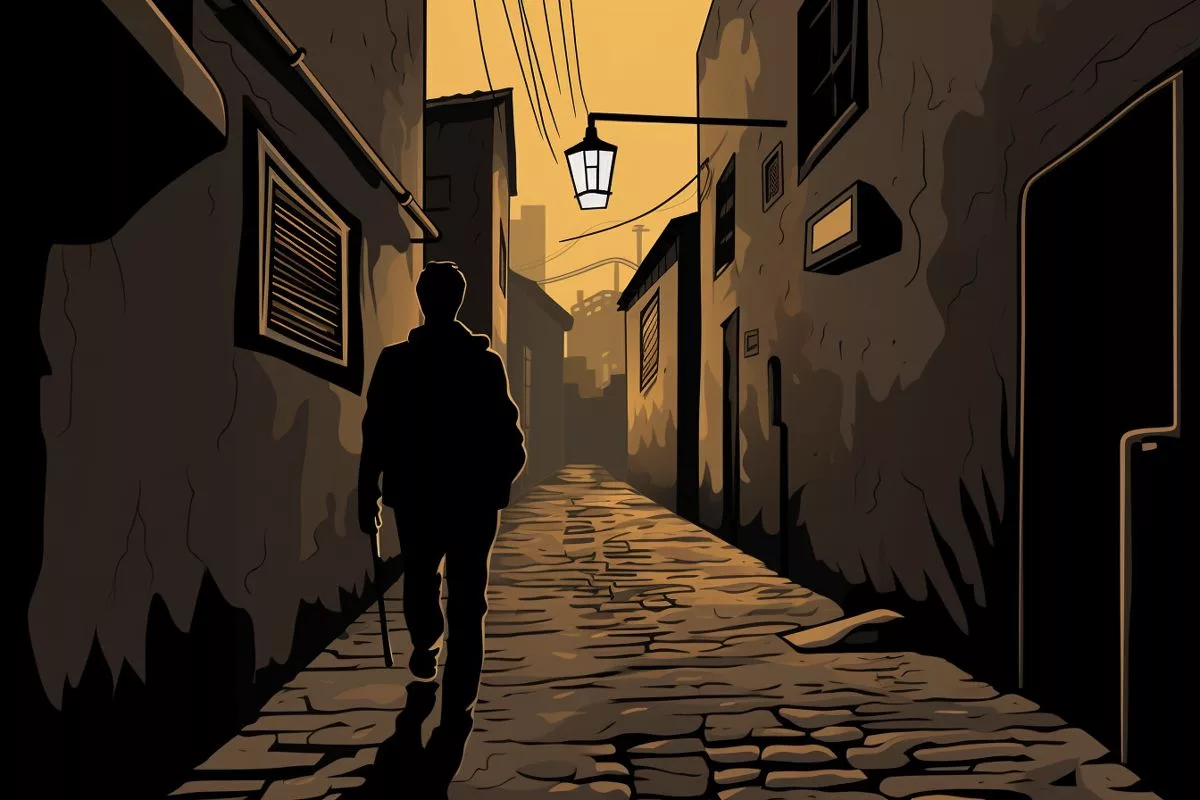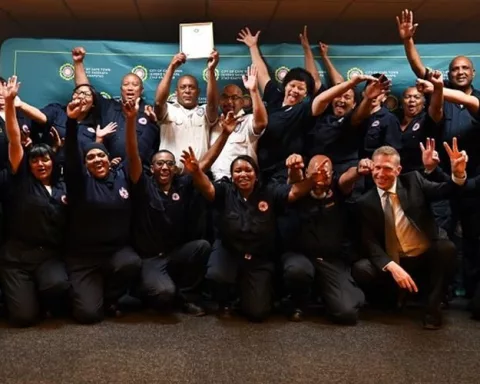Walter Fischel, an American tourist, was robbed and shot in the face during his trip to Cape Town, leaving him without his personal possessions and unable to return home. Despite the trauma, Fischel remained positive and extended his stay to complete his medical appointments and meet with friends. His family set up a fundraiser to aid in his return home and cover expenses. The incident highlights both the realities of crime and the resilience of the human spirit.
What happened to Walter Fischel during his trip to Cape Town?
Walter Fischel, a 55-year-old American tourist, was robbed and shot in the face during his trip to Cape Town. He lost his personal possessions, including his documents and clothes, and was left without his passport, credit cards, and phone. Despite the harrowing experience, Fischel remained positive and extended his stay in Cape Town for a few more days to meet his friends and complete his medical appointments. His family set up a GoFundMe page to aid in covering Fischel’s expenses and coordinating his return flight to Connecticut.
A Trip Turned Tragic
55-year-old American tourist, Walter Fischel, embarked on what he thought would be a casual journey to Cape Town, never imagining the turn of events awaiting him. Instead of a calm exploration of unfamiliar territories, his journey took him into a chilling chapter of struggle, resilience, and the unexpected benevolence of people he’d never met before.
Originally from Connecticut, Fischel had previously been working in a coastal Israeli city from which he was evacuated. Seizing the opportunity, he decided to visit friends in Simion’s Town, a scenic suburb of Cape Town, guided by his GPS device, which promised the quickest route. Contrary to expectations, this high-tech navigation tool led him straight into the crime-ridden heart of Nyanga.
What Fischel found in Nyanga was a far cry from the tranquil coastal vistas he had anticipated. His dream vacation took a dreadful turn when he was robbed of his personal possessions, including his documents and clothes. The horrific experience did not stop there; he was shockingly shot in the face, transforming his peaceful holiday into a horrifying ordeal.
A Family’s Effort and A Community’s Support
Following the incident, a surge of support flowed from Fischel’s family back in the States. His sister, Valerie, set up a GoFundMe page, aptly named ‘Help Walter Get Home’, to aid in covering Fischel’s expenses and coordinating his return flight to Connecticut. Valerie’s daughter, Cate, provided further insight into the dire situation on the fundraising page. She revealed that Fischel was without his passport, credit cards, and phone, his bank accounts were frozen, making him unable to secure a flight home. Added to this, he was jobless, with a family to provide for back in Connecticut, and burgeoning healthcare bills.
Fischel was released from Rondebosch Medical Centre on the following Thursday. Despite the harrowing experience, he was resolute in not allowing it to ruin his original itinerary. He decided to extend his stay in Cape Town for a few more days to meet his friends and complete his medical appointments.
In the wake of the incident, the provincial serious and violent crimes unit launched an investigation, confirmed by police spokesperson, Captain FC van Wyk. The case highlighted the stark reality of crime in specific areas and the potential vulnerability of tourists unfamiliar with these risky regions.
Overcoming Adversity: A Testament to Resilience and Compassion
Fischel’s experiences illustrate both the harsh realities of crime and violence, and the enduring strength of the human spirit. Despite his horrific ordeal, Fischel remained positive, choosing not to let this episode overshadow his travel plans. The efforts of his family to assist him stand as proof of community strength and the inherent human capacity for empathy and compassion.
The incident also brings into focus the role technology plays in our lives. The GPS device, designed to simplify travel, ironically, led Fischel into danger. It forces us to ponder the extent of our reliance on digital tools, particularly in unknown territories. It poses the question whether our escalating dependence on technology is always advantageous or can it sometimes unintentionally steer us into perilous situations.
While the incident has left a lasting impact on Fischel, his determination, along with his family’s support, offers a beacon of hope amidst adversity. The incident, though a grim reminder of the world’s darker corners, was also a testament to our collective capacity for kindness and empathy. This contrast is the heart of Fischel’s tale—a tenacious spirit navigating through its darkest hours, supported by a compassionate community.
What happened to Walter Fischel during his trip to Cape Town?
Walter Fischel, a 55-year-old American tourist, was robbed and shot in the face during his trip to Cape Town. He lost his personal possessions, including his documents and clothes, and was left without his passport, credit cards, and phone.
How did Walter Fischel’s family support him after the incident?
Walter’s sister, Valerie, set up a GoFundMe page to aid in covering his expenses and coordinating his return flight to Connecticut. His daughter, Cate, provided further insight into the dire situation on the fundraising page.
Why did Walter Fischel extend his stay in Cape Town?
Despite the harrowing experience, Fischel remained positive and extended his stay in Cape Town for a few more days to meet his friends and complete his medical appointments.
What did the incident highlight about crime in Cape Town?
The incident highlighted the stark reality of crime in specific areas and the potential vulnerability of tourists unfamiliar with these risky regions.
What does Walter Fischel’s experience illustrate about the human spirit?
Fischel’s experiences illustrate both the harsh realities of crime and violence, and the enduring strength of the human spirit. Despite his horrific ordeal, Fischel remained positive, choosing not to let this episode overshadow his travel plans.
What does the incident bring into focus about technology?
The incident brings into focus the role technology plays in our lives. The GPS device, designed to simplify travel, ironically, led Fischel into danger. It poses the question whether our escalating dependence on technology is always advantageous or can it sometimes unintentionally steer us into perilous situations.












